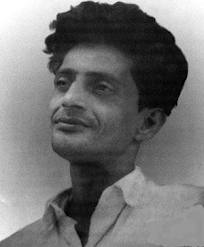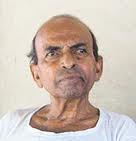Summary | Excerpt | Reading Guide | Reviews | Beyond the Book | Read-Alikes | Genres & Themes | Author Bio

This article relates to The Lowland
In The Lowland, Udayan Mitra, one of the two brothers in the story, gets pulled into India's nascent communist movement that kicked into high gear in the 60s, especially in the state of West Bengal where a fair portion of the novel is set.
 The world's largest democracy has had brushes with communism for decades now, the origins of which can be traced to two farmer-driven movements in the 1940s right around the time of India's independence. The Telangana movement in the southern state of Andhra Pradesh inspired a similar one, the Tebhaga, in West Bengal. While this movement was taking tentative hold and the concept of workers' rights and their awareness was beginning to grow roots, there were incidents of unrest in West Bengal's tea fields, specifically in a small town known as Naxalbari. It was here in May 1967 that a group of tea pickers decided to revolt against their masters' unfair arrests of workers suspected of undesirable activity. Up until this point, dissent had been loosely held together under the auspices of a party called CPI (M) – Communist Party of India, Marxist. It was at Naxalbari that the first shot was fired and the movement turned into an organized and occasionally violent one eventually merging into CPI (ML) – Marxist Leninist.
The world's largest democracy has had brushes with communism for decades now, the origins of which can be traced to two farmer-driven movements in the 1940s right around the time of India's independence. The Telangana movement in the southern state of Andhra Pradesh inspired a similar one, the Tebhaga, in West Bengal. While this movement was taking tentative hold and the concept of workers' rights and their awareness was beginning to grow roots, there were incidents of unrest in West Bengal's tea fields, specifically in a small town known as Naxalbari. It was here in May 1967 that a group of tea pickers decided to revolt against their masters' unfair arrests of workers suspected of undesirable activity. Up until this point, dissent had been loosely held together under the auspices of a party called CPI (M) – Communist Party of India, Marxist. It was at Naxalbari that the first shot was fired and the movement turned into an organized and occasionally violent one eventually merging into CPI (ML) – Marxist Leninist.
 The Naxalbari movement quickly galvanized under the leadership of radical leaders like Charu Majumdar and Kanu Sanyal. These leaders were inspired by the Chinese head, Mao Zedong, and his teachings that instigated the poor to rise against their landlords. Mazumdar and Sanyal together created a potent combination that quickly fanned the flames of "success" throughout West Bengal, most specially the vibrant city of Kolkata (then known as Calcutta). The duo was convinced that the success of the revolution depended as much on support from urban centers as it did on continued involvement from the rural farmers. Students were the perfect vectors. They boycotted college in large numbers to join the growing movement and soon colleges in Kolkata were home to Naxalite (as the revolutionaries came to be known) activity. Presidency College in Kolkata (which is featured in The Lowland) was a hotbed of activity and served as headquarters.
The Naxalbari movement quickly galvanized under the leadership of radical leaders like Charu Majumdar and Kanu Sanyal. These leaders were inspired by the Chinese head, Mao Zedong, and his teachings that instigated the poor to rise against their landlords. Mazumdar and Sanyal together created a potent combination that quickly fanned the flames of "success" throughout West Bengal, most specially the vibrant city of Kolkata (then known as Calcutta). The duo was convinced that the success of the revolution depended as much on support from urban centers as it did on continued involvement from the rural farmers. Students were the perfect vectors. They boycotted college in large numbers to join the growing movement and soon colleges in Kolkata were home to Naxalite (as the revolutionaries came to be known) activity. Presidency College in Kolkata (which is featured in The Lowland) was a hotbed of activity and served as headquarters.
 Relentless attacks by the ruling parties in India kept the Naxalite movement in check for the most part, and over subsequent years momentum was lost due to internal party splits and the death of its leaders. Kanu Sanyal committed suicide in 2010 by which point the Naxalite movement was mostly operating as a guerilla force in the jungles of India's Northeast and the southern state of Andhra Pradesh. Nevertheless the Naxalites (or Maoists as they are also now called), have enough power and have caused enough disruption to be labeled a threat to India's national security. The Naxalites have been designated a terrorist group by the Indian government under the country's Unlawful Activities (Prevention) Act.
Relentless attacks by the ruling parties in India kept the Naxalite movement in check for the most part, and over subsequent years momentum was lost due to internal party splits and the death of its leaders. Kanu Sanyal committed suicide in 2010 by which point the Naxalite movement was mostly operating as a guerilla force in the jungles of India's Northeast and the southern state of Andhra Pradesh. Nevertheless the Naxalites (or Maoists as they are also now called), have enough power and have caused enough disruption to be labeled a threat to India's national security. The Naxalites have been designated a terrorist group by the Indian government under the country's Unlawful Activities (Prevention) Act.
It is important to note that the Naxalites fanned the early flames of communism and while their specific brand of ideology might no longer be in fashion, communism in general continues to play a vibrant (if small) part in Indian politics. The Communist Party of India (Marxist), in fact, was the ruling party in West Bengal for 34 long years. It was only as recently as 2011 that the CPI-M lost to the Trinamool Congress Party, lead by the charismatic – if controversial – Mamata Banerjee (who once served as India's railways minister and has been accused of channeling all kinds of pork back to her home state of West Bengal).
First image of Charu Majumdar from The Yellow Book
Second image of Kanu Sanyal from The Telegraph (Calcutta, India)
Third image of Naxalbari mural from Indian Vanguard
Filed under Society and Politics
![]() This "beyond the book article" relates to The Lowland. It originally ran in October 2013 and has been updated for the
June 2014 paperback edition.
Go to magazine.
This "beyond the book article" relates to The Lowland. It originally ran in October 2013 and has been updated for the
June 2014 paperback edition.
Go to magazine.
Be careful about reading health books. You may die of a misprint.
Click Here to find out who said this, as well as discovering other famous literary quotes!
Your guide toexceptional books
BookBrowse seeks out and recommends the best in contemporary fiction and nonfiction—books that not only engage and entertain but also deepen our understanding of ourselves and the world around us.